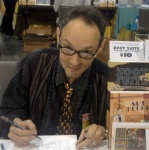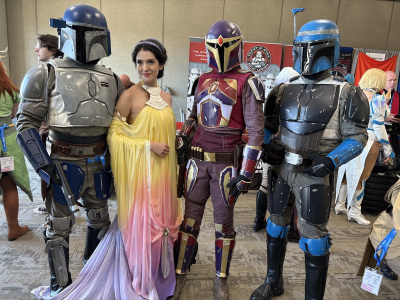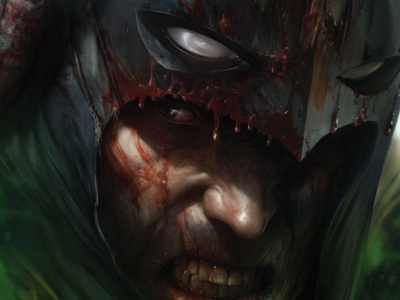
New developments in the ongoing controversies over the Big Two’s treatment of creators just keep coming. On Saturday Roger Langridge, who recently announced that he would no longer work for Marvel or DC over their treatment of early creators (see "Another Creator Shuns Big Two Over Ethical Concerns"), gave an interview to the Comic Riffs blog of the Washington Post in which he detailed his reasons for ending his work for Marvel. He emphasized that his personal treatment had given him no causes for concern, but that issues like the ongoing litigation between Marvel and the Kirby heirs and Marvel’s tough handling of Gary Friedrich’s convention sales were key issues. He didn’t sound too happy about DC’s Watchmen prequels either, noting that "If anything, it’s those improved circumstances [for creators now vs. the Kirby era] that make the bad decisions, like the Watchmen prequels, seem so much worse by contrast."
Taking the other side of the issue of the Kirby heirs on Monday was the often controversial Scott (PVP) Kurtz, who wrote in a post titled "Where Credit Is Due" on his blog at PVP Online that "There’s a lot of slacktivism happening in the facetweets and twitsbooks trying to get people to boycott the [Avengers] movie or give to the Hero Initiative to counterbalance the karma-carbon footprint you left when you saw the movie three times and enjoyed it." He published a Kirby drawing of the Avengers from the first issue next to an image from the Mark Millar/Bryan Hitch Ultimates version, and asked "Which looks more like the movie you saw?," arguing that those creators and hundreds of others had worked on the Avengers since Kirby did, making the origins of the movie versions of the characters blurred at best.
Kurtz says he doesn’t like the way Kirby and Superman creators Sigel and Shuster were treated, saying "These guys got screwed," but argues that "The policies that screwed them over were changed decades ago." He wraps up by condemning "the cynics" who are trying "to pit fandom and an entire industry against itself to make themselves feel powerful."
This recent run of events was kicked off by the departure of Chris Roberson from DC last month, which kicked off a big reaction (see "Roberson Reaction Wide and Deep"), and reinforced a narrative that’s now being cited by Langridge and disputed by Kurtz. If anything, the controversy seems to be picking up steam, with more activity around the issue as time goes on.







